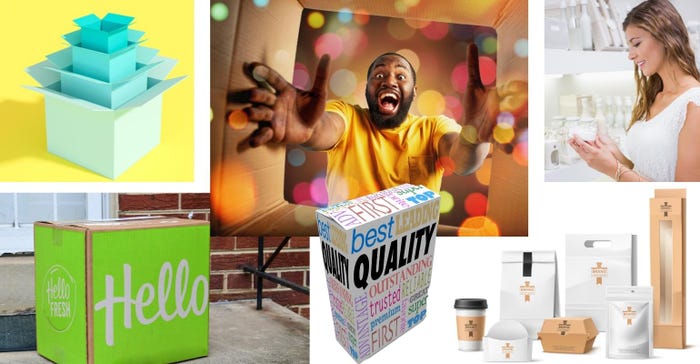7 Tips for Custom Retail Packaging That Defines Your Brand
Learn what custom retail packaging is and discover tips to make it better represent your business, defining your brand and appealing to customers.

Creating an exceptional experience for your customers extends beyond the purchasing process; it even goes into the packaging and delivery of your products arriving at their house.
Although the sales conversion has already been made, this stage of your customer journey provides the opportunity to make them become return customers or even start advocating for your brand. Achieving these results shows your marketing is working well together from the first impressions.
Yet, many businesses don’t always think as much about product packaging as other marketing campaigns, design features, or strategies. This misses the chance to promote and define your brand by creating links between visuals and your business. Set that right by reviewing your existing packaging, using these tips to make it memorable and representative of your brand.
What is custom retail packaging?
Depending on whether your customer is purchasing a product in-store or online, the retail packaging they interact with may vary.
In-store packaging protects the item during transit and communicates important information and instructions to the user. It also makes the product appealing to customers from a shelf, encouraging them to pick it up and buy it. It may also include the bags customers get to carry their items.
Online packaging also includes designing and using branded boxes or envelopes. These tend to focus more on showing your brand and adding to the customer experience once the product is delivered. In this way, different elements of your packaging require varying approaches to customizing them, ensuring they serve their purpose and present a unified appearance across your packaging.
Successful packaging will define and promote your brand. Customers interact with your brand through its packaging, so consider how your packaging represents your brand.
How does your packaging define your brand?
As you design your packaging, remember what it’s saying about your brand. Although explicitly, it may share your brand information and add to your image, the attention shown to your packaging can also show what matters to your business. You can’t claim to be a high-quality brand if your packaging isn’t or care about the customer experience but not create an exceptional one when they unbox their delivered products.
Your packaging should be authentic to your brand, highlighting who it is as a business. This may take several designs and prototypes to get your packaging right, learning from the process what makes your brand image and what areas of your packaging and its sustainability are most important. However, once you create your custom packaging, this can market your brand further and build ongoing customer relationships with your buyers.
To help you find the design that defines your brand, use the following seven tips to consider various aspects of creating your packaging.
1. Measure your dimensions.
2. Design inside and out.
3. Link to your brand.
4. Consider the quality.
5. Make unboxing an experience.
6. Advertise.
7. Test with prototypes.
About the Author(s)
You May Also Like




